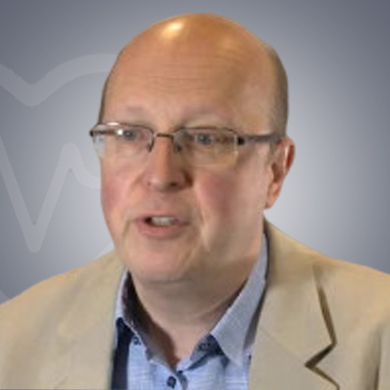
of experience
Speaks: English
Here is the list of some of the conditions Dr Robert Huddard treats:
Breast cancer surgery is performed to remove the specific area of cancer in the breasts. The surgeon removes cancer and healthy tissues all around it. You usually have to undergo radiotherapy for the breast after this kind of surgery.
Your symptoms depend on the type of cancer you are affected with, what is the stage, the location of cancer, and how far it has spread in the body. Cancer may cause any type of symptoms or signs. A sign can be seen by others, such as a fever, vomiting, and breathing. Symptoms can be perceived only by the person is suffering from the condition. Around 200 types of cancer are known till date and all these can cause different symptoms. Cancer can produce the below-listed conditions However, symptoms might vary from person to person. Every condition has its symptoms:
Dr Robert Huddard is available for consultation from 11 am to 6 pm (Monday to Saturday). The doctor’s clinic is closed on Sunday.
Dr Robert Huddard performs a wide variety of procedures for cancer treatment. Some of these are
The doctor has rich experience in performing complex cases with accuracy. The surgeon has performed a large number of procedures with a high success rate and adheres to medical protocols to ensure patient safety and speedy recovery. The specialist is proficient in using the latest techniques to perform the procedures and ensures that the patient has a speedy recovery. Cancer surgery is done using two techniques - open surgery and minimally invasive surgery. Open surgery involves making an incision to remove the cancerous tissues. Some adjacent healthy tissues are also extracted in this process. There are several techniques available for minimally invasive surgery, such as cryosurgery, robotic surgery, laparoscopy, cryosurgery, and laser surgery.

Share Your Experience about Dr. Robert Huddard

A surgical oncologist is a general surgeon with training in various procedures for diagnosing or removing cancerous growths. The common procedures performed by a surgical oncologist are biopsy and surgery for the removal of cancerous growth. In some cases, a surgical oncologist performs surgeries to find out parts of the body where cancer has spread. In special cases, the surgeons do preventive surgeries. Sometimes, additional treatments like chemotherapy or radiation follow surgery. In these cases, surgical oncologists play an important role in providing care to the patients post-surgery.
A surgical oncologist can suggest or perform a variety of diagnostic tests including:
A biopsy is the most common procedure to diagnose most types of cancer. While other tests can only suggest if cancer is present, a biopsy can make an accurate diagnosis. During this process, the doctor removes a very small amount of tissues to observe under a microscope.
You should see a surgical oncologist in case your primary care doctor refers you to one. The doctor may also tell you to visit a surgical oncologist for the diagnosis of cancer. Some specialized general surgeons can also perform surgery on various types of cancer. Below are some situations when you need to see a surgical oncologist: